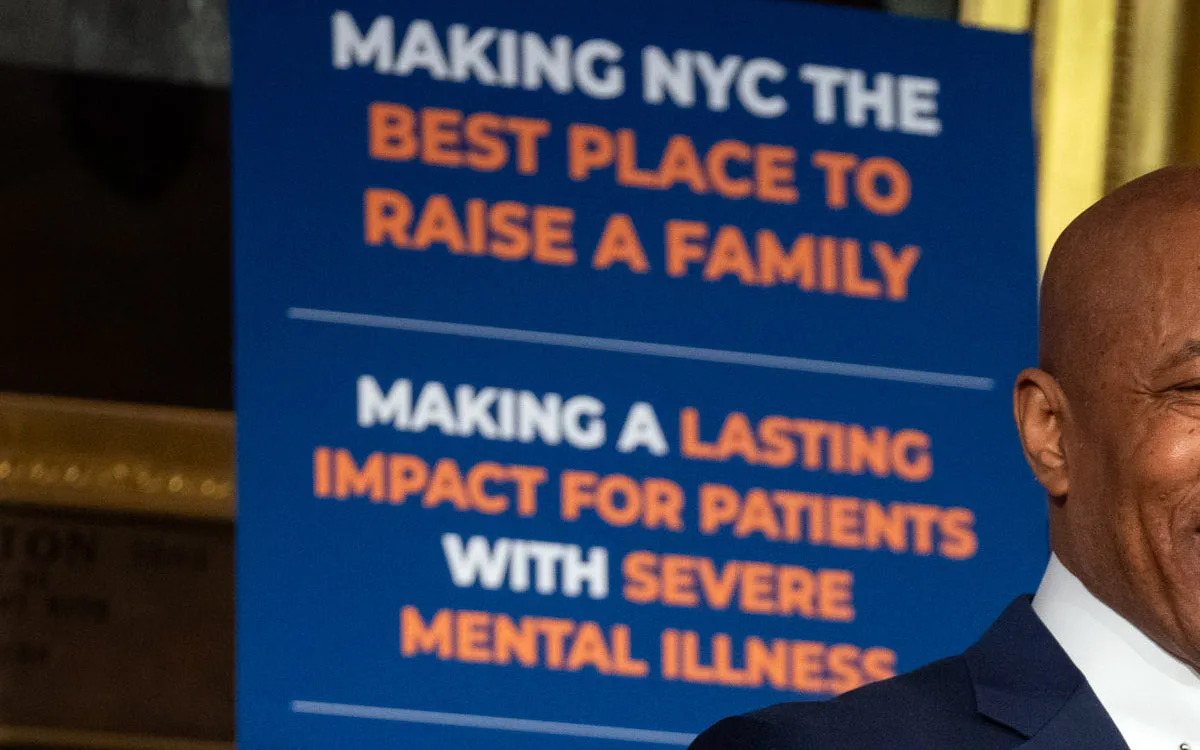
The upcoming mayoral race in New York City promises to be a chaotic spectacle, particularly as the city has shifted slightly to the right since last November. This election pits a combative mayor with deep ties to President Donald Trump against the winner of the Democratic primary, who is expected to be Andrew Cuomo. Mayor Eric Adams plans to gather the necessary 3,750 signatures by May 27 to secure a spot on the November ballot, focusing on public safety, as confirmed by him and an aide in an interview with POLITICO.
In a bid to connect with voters, Adams is set to release a campaign video on Thursday, where he will discuss his personal challenges, express regret for past lapses in judgment, and criticize his opponents for being too lenient on crime. Despite facing significant obstacles, Adams remains optimistic about his strategy to persuade New Yorkers—traditionally Democratic voters—to support a politically unaffiliated incumbent with a mere 20 percent approval rating.
“I’m in the race to the end. I’m not running on the Democratic line. It’s just not realistic to turn around my numbers and run a good campaign from where we are right now,” Adams stated. This shift allows him more time to recover from the reputational damage linked to corruption charges and connect with the increasing number of unaffiliated voters in the city.
Adams faces a challenging landscape as he navigates a campaign without the support of over $4 million in public matching funds, which are critical for a successful election bid. He expressed determination to fight for these funds, asserting, “I will go to court if need be.” This situation not only complicates his campaign but also positions him as a political outsider, which he believes will resonate with voters who prioritize public safety.
With seven months until the election, Adams is tasked with reaching out to less engaged voters, a demographic he believes will respond to his message. While he lacks financial backing and a robust support network, Adams possesses the advantages of incumbency and the ability to generate significant media attention.
New York City is home to approximately 3.3 million registered Democrats, alongside 1.1 million independents and 558,778 Republicans. While Democrats hold a significant advantage, the number of independent voters has increased by 220,346 over the past eight years. Adams and his campaign team are banking on the Democratic nominee winning by a narrow margin, given the competitive nature of the primary and the complexity of ranked choice voting.
They are optimistic that Adams can appeal to disenchanted Democratic voters who may not support the eventual nominee, although this strategy could be risky given his history of aligning with many of Trump’s policies.
National politics loom large in this election, especially considering New Yorkers overwhelmingly rejected Trump in previous elections. Adams has expressed his desire to challenge both the far left of his own party and the Trump administration. He even contemplated suing the Biden administration regarding the burden of an influx of migrants, though his staff advised against it due to political repercussions.
Adams, who has criticized both sides of the political spectrum, believes this election will serve as a platform to validate his moderate stance. “The mayor’s going to set forth policy he believes is right, regardless of whether it’s coming from the Trump administration or traditional Democratic leadership,” stated his close advisor, Frank Carone.
During a recent interview, Adams did not hold back in his criticism of Cuomo, particularly regarding changes to state bail measures that he blames for a rise in crime during the pandemic. “Look at bail reform—that’s Andrew,” Adams remarked, suggesting that Cuomo's decisions have had detrimental effects on public safety.
Cuomo, for his part, defended his endorsement of cashless bail, arguing that it was necessary to address social injustices within the judicial system. The clash between these two figures highlights the stark differences in their approaches to governance and public safety.
As Adams embarks on this challenging campaign trail, he is determined to redefine his narrative and remind voters of the reasons they elected him in the first place. Despite the numerous challenges ahead, including a federal corruption case and internal party conflicts, Adams is resolute in his belief that his personal story and experiences can resonate with the citizens of New York City.
“If I’m able to come back, with all that I went through, and be elected again as mayor, no citizen in this city will ever give up,” Adams concluded, underscoring his commitment to the city he serves.